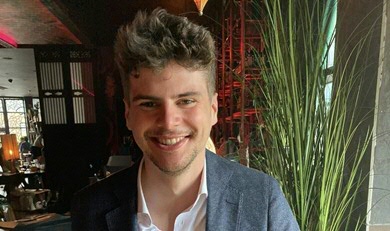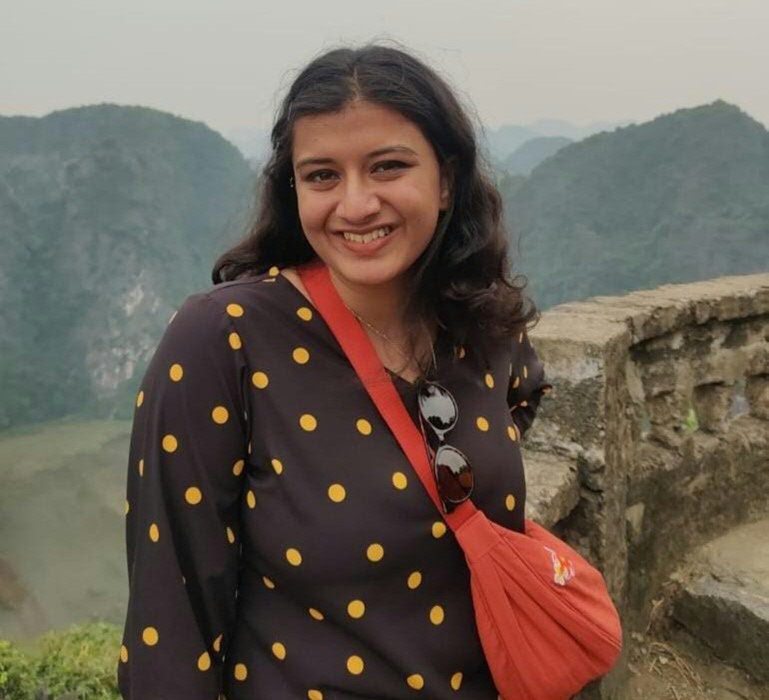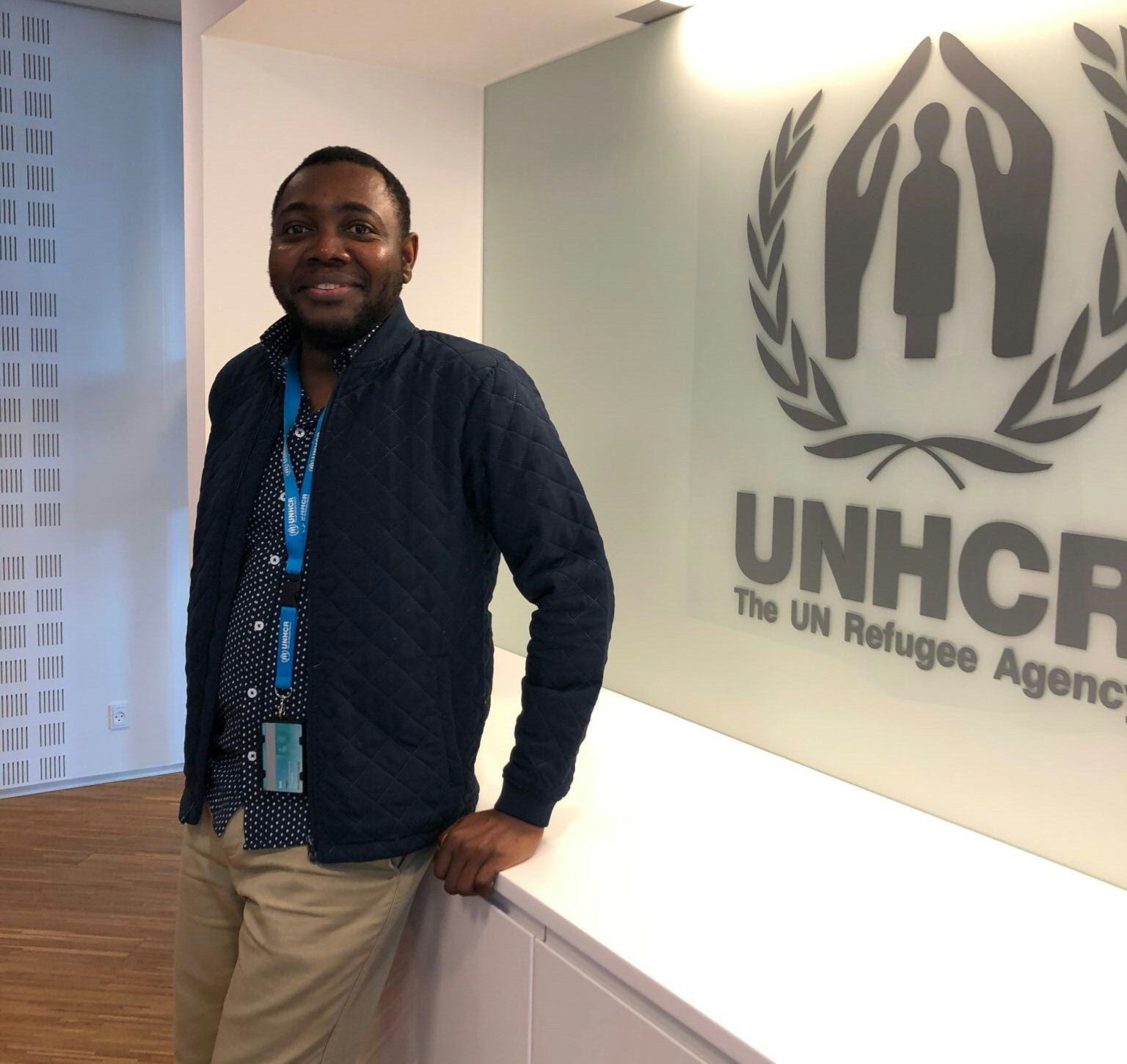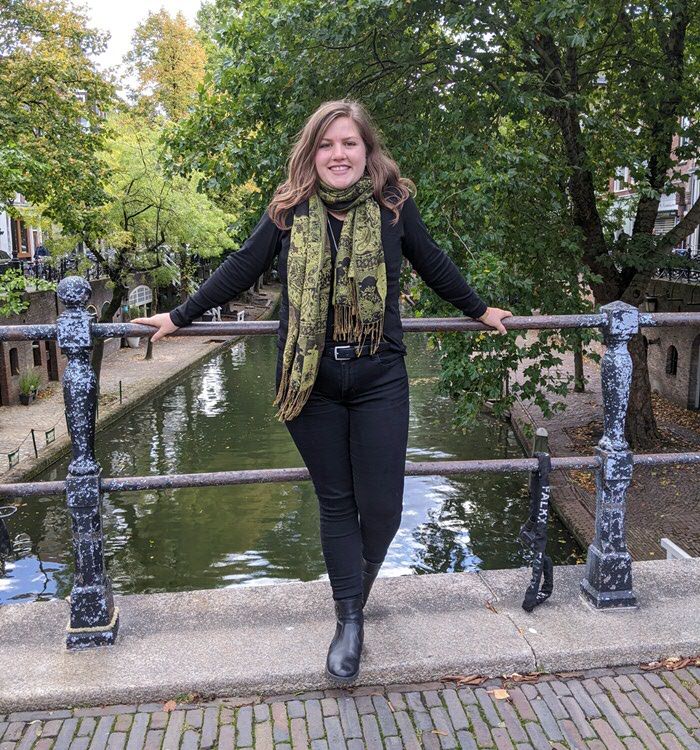
What are the dominant issues in humanitarian action? What is the so-called "aid industry"? And can professionalization prevent dependence on aid? Find out in this programme.
The 120 ECTS Erasmus Mundus Joint Master's Degree in International Humanitarian Action is an inter-university, multidisciplinary Master. You will receive high quality academic education and develop professional competencies to work in the area of humanitarian action. You can study the programme at 8 European universities in the Netherlands, Spain, Sweden, Germany, Ireland, Malta, France, and Poland and follow a Regional Training Track at various global partner universities.
This programme is known for its interdisciplinary, multicultural, and multilingual teaching by interfaculty staff, in-house experts, and field-experienced guest lecturers. You will learn to evaluate humanitarian emergencies, study the causes of conflicts and disasters, analyze different coping strategies, and assess intervention and reconstruction programmes. As a graduate, you will have the capacity to act at all levels of cross-cultural humanitarian relief operations and to enhance professional delivery of assistance and substantial actions.
NB: Application through NOHA network: apply.nohanet.org. Applications submitted via Studielink will not be considered.
Semester 1 (home university): consists of the Intensive Programme and jointly developed NOHA modules providing ample opportunity to learn about and discuss the essentials of humanitarian action and its current trends.
Semester 2 (host university): allows students to obtain more advanced knowledge and competences in specific areas of humanitarian action. Each NOHA programme university offers a study programme around its unique expertise which is supplemented by a set of joint NOHA courses.
| Semesters | ||||
|---|---|---|---|---|
| CoursesCourse Catalog > | 1a | 1b | 2a | 2b |
| Intensive Programme in Humanitarian Action (5 EC) | ||||
| World Politics and Humanitarian Action (5 EC) | ||||
| Social and Medical Sciences in Humanitarian Action (10 EC) | ||||
| Legal Dimensions of Humanitarian Action (5 EC) | ||||
| Management in Humanitarian Action (5 EC) | ||||
| Humanitarian Analysis and Intervention Design (H-AID) (20 EC) | ||||
| Methodology and Research Methods in Humanitarian Studies (5 EC) | ||||
| Advanced Management in Humanitarian Action (5 EC) | ||||
Semester 3: students choose between a Regional Training Track (RTT) and a Work Placement Track (WPT).
RTT: elective courses in regional humanitarian studies at a global partner university.
WPT: advanced career development training and placement at a humanitarian organisation.
Semester 4: allows students to obtain key competences that are necessary to conduct research in the humanitarian action context. Students will write a master thesis in order to demonstrate these competences.
| Semesters | ||||
|---|---|---|---|---|
| CoursesCourse Catalog > | 1a | 1b | 2a | 2b |
| Career Development Training (10 EC, optional) | ||||
| Regional Training Track (30 EC, optional) | ||||
| Work Placement Track (20 EC, optional) | ||||
| Master Thesis (30 EC) | ||||
The first semester is spent at the home university. The second semester is spent at one of the other NOHA European programme universities. During the third semester students choose between the Regional Training Track at one of our global partner universities or the Work Placement Track. Free choice of location for writing the master's thesis in the fourth semester.
| Specific requirements | More information |
|---|---|
| previous education |
Bachelor degree in law, health, psychology, sociology, anthropology, economics, management, international relations or any other humanitarian action related field. |
| knowledge minimum |
Written bachelor's thesis. |
| professional experience |
Relevant working experience is an advantage. |
| grade list |
The programme is highly selective. Priority is given to students with better results. |
| Curriculum Vitae (CV) |
A Curriculum Vitae (CV) |
| language test |
English Language requirement: Candidates must be in possession of one of the following certificates:
Candidates are not required to take an English language test in the following circumstances:
Language requirements for other NOHA Universities: If students wish to start their second semester at the Aix-Marseille Université, they must have previous knowledge of French, since the mode of instruction of this institute is French. Therefore, the candidate is required to have attained at minimum the following level of French: a C1 certificate according to the Common European Framework of Reference for Languages (CEFR). If students wish to start their second semester at the Universidad de Deusto, they must have previous knowledge of Spanish, since the mode of instruction of this institute is Spanish. Therefore, the candidate is required to have attained at minimum the following level of Spanish: a B2 certificate according to the Common European Framework of Reference for Languages (CEFR). |
| reference letter |
Two reference letters |
| (motivation-) letter |
A letter outlining the candidate's motivation for selecting the programme and Master's track, including their expectations and interests. |
| other admission requirements |
Students will be selected based on an assessment of their prior learning, motivation and, if applicable, earlier field experience. IMPORTANT: Application is organized through the NOHA network: apply.nohanet.org. Applications submitted via Studielink will not be considered. Please note that other documents also have to be submitted in order to complete your application, such as a copy of your passport, a scan of your original diploma and a scan of your original academic transcripts. For more information, see: https://nohanet.org/masters#ac-1-2. |
| Study programme | Organization | Transition |
|---|---|---|
| Health and Society | All Research universities |
No additional requirements More information:The programme is highly selective. Interested students should apply through NOHA's website: https://nohanet.org/masters |
| Cultural Anthropology and Development Sociology | All Research universities |
No additional requirements More information:The programme is highly selective. Interested students should apply through NOHA's website: https://nohanet.org/masters |
| Economics and Governance | All Research universities |
No additional requirements More information:The programme is highly selective. Interested students should apply through NOHA's website: https://nohanet.org/masters |
| Health and Life Sciences | All Research universities |
No additional requirements More information:The programme is highly selective. Interested students should apply through NOHA's website: https://nohanet.org/masters |
| International Relations and International Organization | All Research universities |
No additional requirements More information:The programme is highly selective. Interested students should apply through NOHA's website: https://nohanet.org/masters |
| Law | All Research universities |
No additional requirements More information:The programme is highly selective. Interested students should apply through NOHA's website: https://nohanet.org/masters |
| Religious Studies | All Research universities |
No additional requirements More information:The programme is highly selective. Interested students should apply through NOHA's website: https://nohanet.org/masters |
| Economics and Business Economics - International Economics and Sustainable Development, Economics and Business Economics, Economics and Business Economics - Business Economics, Economics and Business Economics - Economics | All Research universities |
No additional requirements More information:The programme is highly selective. Interested students should apply through NOHA's website: https://nohanet.org/masters |
| Clinical Sciences | All Research universities |
No additional requirements More information:The programme is highly selective. Interested students should apply through NOHA's website: https://nohanet.org/masters |
| Philosophy, Politics & Economics | All Research universities |
No additional requirements More information:The programme is highly selective. Interested students should apply through NOHA's website: https://nohanet.org/masters |
| Middle Eastern Studies | All Research universities |
No additional requirements More information:The programme is highly selective. Interested students should apply through NOHA's website: https://nohanet.org/masters |
| South and Southeast Asian Studies | All Research universities |
No additional requirements More information:The programme is highly selective. Interested students should apply through NOHA's website: https://nohanet.org/masters |
| Humanistic Studies | All Research universities |
No additional requirements More information:The programme is highly selective. Interested students should apply through NOHA's website: https://nohanet.org/masters |
| Theology | All Research universities |
No additional requirements More information:The programme is highly selective. Interested students should apply through NOHA's website: https://nohanet.org/masters |
| Economie | All Research universities |
No additional requirements More information:The programme is highly selective. Interested students should apply through NOHA's website: https://nohanet.org/masters |
| Global Law | All Research universities |
No additional requirements More information:The programme is highly selective. Interested students should apply through NOHA's website: https://nohanet.org/masters |
| Medicine | All Research universities |
No additional requirements More information:The programme is highly selective. Interested students should apply through NOHA's website: https://nohanet.org/masters |
| Gezondheidswetenschappen | All Research universities |
No additional requirements More information:The programme is highly selective. Interested students should apply through NOHA's website: https://nohanet.org/masters |
| Sociology | All Research universities |
No additional requirements More information:The programme is highly selective. Interested students should apply through NOHA's website: https://nohanet.org/masters |
| Psychologie (NL), Psychology (EN) | All Research universities |
No additional requirements More information:The programme is highly selective. Interested students should apply through NOHA's website: https://nohanet.org/masters |
| Political Science | All Research universities |
No additional requirements More information:The programme is highly selective. Interested students should apply through NOHA's website: https://nohanet.org/masters |
| Management, Society and Technology | All Research universities |
No additional requirements More information:The programme is highly selective. Interested students should apply through NOHA's website: https://nohanet.org/masters |
| African Studies | All Research universities |
No additional requirements More information:The programme is highly selective. Interested students should apply through NOHA's website: https://nohanet.org/masters |
| International and European Law | All Research universities |
No additional requirements More information:The programme is highly selective. Interested students should apply through NOHA's website: https://nohanet.org/masters |
| International Development Studies | All Research universities |
No additional requirements More information:The programme is highly selective. Interested students should apply through NOHA's website: https://nohanet.org/masters |
| Nutrition and Health | All Research universities |
No additional requirements More information:The programme is highly selective. Interested students should apply through NOHA's website: https://nohanet.org/masters |
| Politics, Psychology, Law and Economics | All Research universities |
No additional requirements More information:The programme is highly selective. Interested students should apply through NOHA's website: https://nohanet.org/masters |
| Global Responsibility & Leadership | All Research universities |
No additional requirements More information:The programme is highly selective. Interested students should apply through NOHA's website: https://nohanet.org/masters |
| Global Studies | All Research universities |
No additional requirements More information:The programme is highly selective. Interested students should apply through NOHA's website: https://nohanet.org/masters |
| Study programme | Organization | Transition |
|---|---|---|
| Human Geography and Planning | University of Groningen |
No additional requirements More information:The programme is highly selective. Interested students should apply through NOHA's website: https://nohanet.org/masters |
| History | University of Groningen |
No additional requirements More information:The programme is highly selective. Interested students should apply through NOHA's website: https://nohanet.org/masters |
| Communication and Information Studies | University of Groningen |
No additional requirements More information:The programme is highly selective. Interested students should apply through NOHA's website: https://nohanet.org/masters |
| Juridische Bestuurskunde | University of Groningen |
No additional requirements More information:The programme is highly selective. Interested students should apply through NOHA's website: https://nohanet.org/masters |
| Economics and Business Economics | University of Groningen |
No additional requirements More information:The programme is highly selective. Interested students should apply through NOHA's website: https://nohanet.org/masters |
| Psychology (EN) | University of Groningen |
No additional requirements More information:The programme is highly selective. Interested students should apply through NOHA's website: https://nohanet.org/masters |
Important: Application through NOHA network: apply.nohanet.org. Applications submitted via Studielink will not be considered.
An applicant must both meet the admission requirements and successfully complete a selection procedure in order to be admitted to the programme.
| Type of student | Deadline | Start course |
|---|---|---|
| EU/EEA students | 15 April 2026 | 01 September 2026 |
| 15 April 2027 | 01 September 2027 | |
| non-EU/EEA students | 15 April 2026 | 01 September 2026 |
| 15 April 2027 | 01 September 2027 |
| Specific requirements | More information |
|---|---|
| previous education |
Bachelor degree in law, health, psychology, sociology, anthropology, economics, management, international relations or any other humanitarian action related field. |
| knowledge minimum |
Written bachelor's thesis. |
| professional experience |
Relevant working experience is an advantage. |
| grade list |
The programme is highly selective. Priority is given to students with better results. |
| Curriculum Vitae (CV) |
A Curriculum Vitae (CV) |
| language test |
English Language requirement: Candidates must be in possession of one of the following certificates:
Candidates are not required to take an English language test in the following circumstances:
Language requirements for other NOHA Universities: If students wish to start their second semester at the Aix-Marseille Université, they must have previous knowledge of French, since the mode of instruction of this institute is French. Therefore, the candidate is required to have attained at minimum the following level of French: a C1 certificate according to the Common European Framework of Reference for Languages (CEFR). If students wish to start their second semester at the Universidad de Deusto, they must have previous knowledge of Spanish, since the mode of instruction of this institute is Spanish. Therefore, the candidate is required to have attained at minimum the following level of Spanish: a B2 certificate according to the Common European Framework of Reference for Languages (CEFR). |
| reference letter |
Two reference letters |
| (motivation-) letter |
A letter outlining the candidate's motivation for selecting the programme and Master's track, including their expectations and interests. |
| other admission requirements |
Students will be selected based on an assessment of their prior learning, motivation and, if applicable, earlier field experience. IMPORTANT: Application is organized through the NOHA network: apply.nohanet.org. Applications submitted via Studielink will not be considered. Please note that other documents also have to be submitted in order to complete your application, such as a copy of your passport, a scan of your original diploma and a scan of your original academic transcripts. For more information, see: https://nohanet.org/masters#ac-1-2. |
Important: Application through NOHA network: apply.nohanet.org. Applications submitted via Studielink will not be considered.
An applicant must both meet the admission requirements and successfully complete a selection procedure in order to be admitted to the programme.
| Type of student | Deadline | Start course |
|---|---|---|
| EU/EEA students | 15 April 2026 | 01 September 2026 |
| 15 April 2027 | 01 September 2027 | |
| non-EU/EEA students | 15 April 2026 | 01 September 2026 |
| 15 April 2027 | 01 September 2027 |
The NOHA participation fees are €4,000 per semester (€16,000 for the entire two-year programme) and need to be paid directly to the NOHA consortium. For more information, please consult: https://nohanet.org/masters.
Practical information for:
More than a decade of experience has proved the Network's commitment and capacity to educate and train highly committed and interdisciplinary persons who can act at all levels of humanitarian relief operations and who can function in a variety of ways to enhance the delivery of humanitarian assistance and sustainable actions.
Some 3,500 graduated professionals work in the field of humanitarian relief and international co-operation. They hold various positions of responsibility in all kinds of international and national NGOs, institutions, agencies and government both in the field and at headquarters level all around the world. Such positions include programme managers, protection officers, field/country directors, emergency team leaders, administrators, researchers, academics, and consultants.
The list below shows an overview of all NOHA lecturers and associate staff. Visit their personal university profile page to read more about the research topics our staff is involved in and to see an overview of their publications.



NOHA is an inter-university interdisciplinary master's programme that provides a comprehensive blend of theoretical and practical knowledge and experience in the field of humanitarian action. NOHA is unique because of its international academic exposure that fosters a global alumni network of diverse and passionate humanitarians, strengthens expertise in cross-cutting issues, and enhances professional competencies.
With a prior multidisciplinary background in Social Work and an interest in child protection in humanitarian action, NOHA gave me the platform to dive deeper into the complexities and intricacies of humanitarian emergencies. I particularly appreciate the international and multicultural nature of the programme as it allowed me to engage in intentional and meaningful interactions with people from diverse and intersecting contexts, identities, countries, and regions and to exchange shared values and interests.
My work placement at SolidarityNow - Blue Refugee Centre introduced me to the refugee context in Greece and Europe. As a Child-Friendly Space Facilitator, I cultivated my skills in working autonomously with refugee and migrant children, centring child rights and their best interests at the core, providing mental health and psychosocial support, facilitating educational activities, and much more.
Overall, NOHA inspired me to grow as an individual through reflective processes and proactively delving deeper into humanitarian realities.

As part of the third semester of the NOHA master's programme, I chose the Work Placement Track because I was motivated to gain a professional understanding of education in humanitarian settings in particular, having experienced how displacement affects the education of children firsthand in my country. Thankfully, I got an internship with the UNHCR Education Section HQ in Copenhagen, Denmark.
My internship with the UNHCR hugely contributed to my understanding of how global policies and laws are operationalized into programmes and projects for the protection and promotion of the rights of refugees. My role as the Primary Education intern was to provide support to country-level programming for the ‘Educate a child’ programme, which supports the education of refugee children in 14 countries. I also assisted in the development of a new three-year phase of this programme and learned how to handle the more technical aspects of humanitarian programme development. As part of my tasks, I also wrote policy briefs on various topics relevant to refugee education. This opportunity to work with global data on displaced persons helped inspire the formation of my master’s thesis.
I really liked that this UNHCR office is located in a building with 11 other UN agencies. This gave me the opportunity to network with top professionals in various specialities and people from many diverse backgrounds, which also helped improve my interpersonal competences. The internship combined academic theories and professional practice, which was one of my expectations of the NOHA master’s programme.

During my studies I focused on human rights, primarily concerning refugees and other forced migrants. I chose to study NOHA because it exemplified what I wanted for my future and the programme paralleled both my education and experiences. It expanded on the broader humanitarian context, but also provided a regional focus.
You will spend your second and third semester of NOHA abroad at two of the numerous partner universities. I chose to go to the University of Malta during the second-semester specialization period to focus on forced migration in Malta and its geostrategic location in the EU.
I selected Chiang Mai University, Thailand, for the exchange in my third semester, the Regional Training Track, because it offered a regional perspective on humanitarian causes within the greater Mekong sub-region. I specifically focused on labour migrants in Thailand from a regional perspective and learned about the regional solutions. The courses at Chiang Mai University and two internships at Mekong Migration Network and ADRA-Thailand were very informative and helped me understand the sociopolitical situation of labour migrants. I appreciated the ability to learn about the humanitarian field through the lens of the countries we study in.
My experience in Thailand motivated my thesis topic, which focused on labour migrants and how the effects of Covid-19 and political events in neighboring countries affected their narrative in Thailand. NOHA gave me the unique opportunity to understand the broad humanitarian field with the specificities of the comprehension of migration in the greater Mekong region.